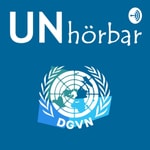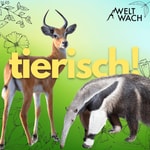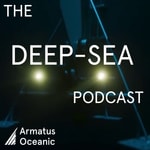ZSL Wild Science Podcast – Details, episodes & analysis
Podcast details
Technical and general information from the podcast's RSS feed.

ZSL Wild Science Podcast
Zoological Society of London
Frequency: 1 episode/60d. Total Eps: 46

Recent rankings
Latest chart positions across Apple Podcasts and Spotify rankings.
Apple Podcasts
🇬🇧 Great Britain - naturalSciences
02/08/2025#30🇬🇧 Great Britain - naturalSciences
01/08/2025#31🇬🇧 Great Britain - naturalSciences
30/07/2025#100🇬🇧 Great Britain - naturalSciences
29/07/2025#90🇬🇧 Great Britain - naturalSciences
28/07/2025#81🇬🇧 Great Britain - naturalSciences
27/07/2025#66🇬🇧 Great Britain - naturalSciences
26/07/2025#50🇬🇧 Great Britain - naturalSciences
25/07/2025#33🇬🇧 Great Britain - naturalSciences
24/07/2025#99🇬🇧 Great Britain - naturalSciences
23/07/2025#89
Spotify
No recent rankings available
Shared links between episodes and podcasts
Links found in episode descriptions and other podcasts that share them.
See all- https://ukcop26.org/
57 shares
- https://unfccc.int/
25 shares
RSS feed quality and score
Technical evaluation of the podcast's RSS feed quality and structure.
See allScore global : 48%
Publication history
Monthly episode publishing history over the past years.
ZSL #042 Nature's Negotiators: The UN's Wildest Diplomatic Mission - Part 1
Episode 42
mercredi 21 août 2024 • Duration 34:40
You may have heard of a COP, and you’ve almost definitely heard of the United Nations (UN), but how much do you know about the negotiations that go into getting nature, climate and biodiversity embedded into international policy? Ahead of the United Nations Biodiversity Conference (CBD COP16) in Colombia this autumn, we’re hearing from policy experts in this two-part miniseries on how we can save the planet one meeting at a time…or at least try to.
Overview
00:11 Introduction to Nature’s Negotiators mini-series
00:24 Bethan Laughlin, ZSL’s Senior Policy Specialist, speaking from a CBD intercessional meeting in Nairobi
01:07 Introduction from Harriet McAra
2:09 Interview with Bethan Laughlin on the history of the CBD, UNFCCC and Global Biodiversity Framework
10:02 Nelly Musyoka, ZSL Kenya’s Community Liaison Officer, on how the 23 CBD targets are applied to real world conservation
14:39 Bethan Laughlin on what ZSL’s priorities are for COP16 in Colombia
23:39 Fiona Dobson, RSPB, on what RSPB’s priorities are for COP16 in Colombia
33:18 Outro and further information
Resources
- If there’s a topic you’d like to hear on a future podcast, or if you’d like to share your thoughts, email the ZSL Wild Science Podcast at: wild.science@zsl.org
- Check out our science and conservation work at: www.zsl.org/Science or www.zsl.org/conservation
- Bethan Laughlin: https://www.zsl.org/about-zsl/our-people/bethan-laughlin
- Watch a recording of our Science and Conservation Event, Putting Nature at the Heart of Global Decision Making: https://www.zsl.org/news-and-events/events/putting-nature-heart-global-decision-making
- View the infographic depicting successes and failures following the Rio Earth Summit as described by Bethan in this episode: https://cms.zsl.org/sites/default/files/2024-08/CBD%20UNFCCC%20timeline.png
Get in touch
- Email wild.science@zsl.org with your questions, comments, and thoughts for future episodes!
- Tweet us @ZSLScience with the hashtag #ZSLWildScience
- Follow us on Facebook @ZSLScienceAndConservation
ZSL #041 Reimagining Coral Reefs
Episode 41
vendredi 14 juin 2024 • Duration 29:05
Out of sight…but not out of mind? Coral reefs exist largely out of sight for the majority of the world’s population, so the vast array of ecosystem services they provide for local communities are often forgotten, leading conservation efforts to feel like an uphill battle. In this episode, we talk to the people trying to tackle this problem; from using the sounds that healthy and degraded coral reefs make to monitor their restoration, to bringing people closer to coral reefs using virtual reality.
Overview
00:13 Introduction to the topic from Harriet McAra
01:26 Ben Williams, PhD student at the Institute of Zoology and UCL, on coral reefs’ importance, coral soundscapes and the Mars Assisted Reef Restoration System
08:30 Introduction to the Datascape Realities Project
08:52 John Zhang and Lourenco Viveiros, co-founders of Datascape Realities, and Jason Lynch, UCL and Institute of Zoology
28:14 Outro and further information
Resources
- If there’s a topic you’d like to hear on a future podcast, or if you’d like to share your thoughts, email the ZSL Wild Science Podcast at: wild.science@zsl.org
- Check out our science and conservation work at: www.zsl.org/Science or www.zsl.org/conservation
- Ben Williams: https://www.zsl.org/about-zsl/our-people/ben-williams
- Mars Assisted Reef Restoration System: https://www.buildingcoral.com/ and https://www.buildingcoral.com/news/mars-data-scientists-turn-their-skills-to-coral-reef-restoration
- Datascape Realities: https://www.datascaperealities.com/ and @datascape_real
Get in touch
- Email wild.science@zsl.org with your questions, comments, and thoughts for future episodes!
- Tweet us @ZSLScience with the hashtag #ZSLWildScience
- Follow us on Facebook @ZSLScienceAndConservation
ZSL #031 Habitat loss and human health – understanding the links between ecosystem degradation and infectious disease outbreaks
Episode 31
jeudi 4 mars 2021 • Duration 38:53
After more than a year of Covid-19 impacting global populations, health systems and economies, one of the major questions being asked was how did this start, and how can we prevent it from happening again? As we humans increasingly disturb our planet’s natural habitats and convert them to agricultural and urban areas, the way we interact with wildlife around us also changes. In this episode, Monni turns to a team of experts in wildlife diseases, to discuss this link between ecosystem degradation and infectious disease outbreaks. What makes an animal a good host for carrying zoonotic diseases? Can we predict and prevent infectious disease outbreaks in the future? And exactly what does a job as ‘human bait’ entail?
Guests:
- Dr Rory Gibb, London School of Hygiene and Tropical Medicine
- Dr Christina Faust, Pennsylvania State University
- Dr Kimberly Fornace, London School of Hygiene and Tropical Medicine
Overview
01:40 Monni welcomes Dr Rory Gibb, to discuss zoonotic hosts and their response to land-use change, and how we should move forward to help human health in the future.
18:28 Dr Christina Faust joins Monni to explore disease transmission, explaining where transmission is more likely to happen in different types of landscapes, and how this could be tracked to avoid future outbreaks in humans.
28:43 Monni is joined by the final guest, Dr Kimberly Fornace, to discuss the Monkey Bar project, and how different technologies such as drones and radio collars were used to monitor monkey malaria.
Hosted by Dr Monni Böhm, ZSL Research Fellow and produced by Eleanor Darbey, ZSL Scientific Events Coordinator.
ZSL #030 Can surveillance technology and social science address rule-breaking and wildlife crime?
Episode 30
mardi 2 février 2021 • Duration 47:28
Law breaking, such as poaching or fishing inside marine reserves, is a great challenge to conservationists because research is often complicated by ethics and data privacy. However, important technological progress has been made in recent years, especially in the fields of surveillance and vessel tracking. Join Monni as she finds out from a panel of experts how machine learning and technology developments in drones, infrared imaging, global positioning systems and cameras can help tackle wildlife crime. How can social science help us understand the motivations behind rule-breaking? And what rule is Monni so afraid of admitting that she once broke?
Guests:
- Dr Tom B Letessier, Research Fellow at the Institute of Zoology, ZSL
- Dr Kristina Boerder, Postdoctoral Fellow at the Dalhousie University
- Professor Serge Wich, Liverpool John Moores University
- Dr Colin Beale, Reader at the University of York
- Dr Ana Nuno, NOVA University Lisbon and University of Exeter
Overview
00:53 - Monni is joined by the co-host of today’s episode, Dr Tom B Letessier, an expert in the use of drones and other technologies for marine protected area (MPA) surveillance, fisheries enforcement and megafauna monitoring.
03:49 - Monni and Tom welcome Dr Kristina Boerder to discuss the use of automatic identification systems (AIS) to track illegal activity of fishing vessels in MPAs.
17:48 - Professor Serge Wich joins the hosts to take the surveillance discussion on land, using drones and infrared cameras in tropical terrestrial ecosystems.
24:35 - Dr Colin Beale discusses how to tackle wildlife crime in Africa using algorithms to analyse evidence of illegal activity in the bush and inform ranger-led patrols.
33:44 - Monni and Tom are joined by their final guest, Dr Ana Nuno, to find out how social science can address rule breaking in conservation.
Resources:
- Guardian article on the use of technology to stop illegal trade: https://www.theguardian.com/environment/2019/dec/08/wildlife-trafficking-science-technology-come-to-rescue-end-illegal-trade
- Guardian article on drones and big datat: https://www.theguardian.com/education/2019/feb/18/drones-and-big-data-the-next-frontier-in-the-fight-against-wildlife-extinction
- Global Fishing Watch: https://globalfishingwatch.org/
- Link to New York Times article on Palau vs the Poachers: https://www.nytimes.com/2016/02/21/magazine/palau-vs-the-poachers.html
- Review of the Outlaw Ocean book: https://www.theguardian.com/books/2019/oct/02/the-outlaw-ocean-by-ian-urbina-review
ZSL #029 The future of biodiversity conservation - different dimensions of conservation thinking
Episode 29
mardi 22 décembre 2020 • Duration 43:55
Conservationists are working hard to stem global biodiversity loss. Yet, just like biodiversity itself, the conservation movement is very diverse, with a variety of ideas shaping its framing, purpose and application. In this episode, Monni and co-hosts Yara Shennan-Farpón, Helen Muller and Thalassa McMurdo Hamilton, speak with Dr Chris Sandbrook, co-creator of the Future of Conservation Survey, about some of the lessons learned from analysing the perspectives of nearly 10,000 conservationists from around the world. What could the future of conservation look like? And what would need to happen for us to get there?
Take the survey to find out and reflect on where you think the future of conservation lies: https://www.futureconservation.org/
ZSL #028 What's next for rewilding?
Episode 28
vendredi 11 décembre 2020 • Duration 47:09
Rewilding has emerged as a captivating, but controversial, concept in conservation. Depending on how rewilding is defined, it aims to increase “wildness” of nature, regenerate ecosystem functioning, develop self-sustaining ecosystems, or a combination of these. Join Monni as she finds out from the experts how real “wildness” can be achieved, and why now is an important time for the UK to be thinking about rewilding. What is even possible in places like the UK where we have quite limited space? Should people be part of rewilding? And why can the Tamworth Pig be considered the hippopotamus of the UK?
ZSL #027 Madagascar's missing megafauna: life after lemurs, hippos and elephant birds
Episode 27
jeudi 14 mai 2020 • Duration 44:52
Madagascar is famed for its incredible biodiversity and charismatic lemurs, but has also seen extensive loss of natural habitat. Monni finds out from a panel of Madagascar aficionados what the island has been like in the past and what the challenges are for its surviving wildlife. How big is an elephant bird and its poo? What can old bones tell us? What are the ups and downs of conservation efforts on Madagascar? And why is the Madagascar pochard such a special bird?
This episode was recorded in November 2019
ZSL #026 Shifting tides: how can small-scale fisheries help address the Sustainable Development Goals?
Episode 26
lundi 10 février 2020 • Duration 43:36
Small-scale fisheries (SSFs) provide around two-thirds of the world’s catch intended for human consumption, and support 90% of employment in the fisheries sector, therefore should have a huge role to play in achieving some of the Sustainable Development Goals (SDGs). Despite this, they are barely mentioned. Monni finds out from a panel of SSF a-fish-ionados why SSFs are being overlooked, what we can learn from them, and how we can better incorporate SSFs into policy, to meet human needs while safeguarding marine biodiversity. But where does gender come into this? And what is this creature that breeds like a plant but feeds like a carnivore?
ZSL #025 Can badger vaccination help eradicate bovine TB?
Episode 25
jeudi 12 décembre 2019 • Duration 43:41
For decades, conservationists, vets and farmers in the UK have been at loggerheads about the best way to manage bovine tuberculosis (bTB). This cattle disease is a huge burden on the farming industry and can pass between cattle and badgers, making it difficult to eradicate. In this episode, Monni teams up with bTB & badger specialists, to discuss badger vaccination as an alternative to culling operations - the current approach to controlling the disease in England. How do the two approaches compare in terms of effectiveness, practicality and cost? How can the disease be eradicated? And what on earth is a Goodger©?
ZSL #024 Street-smart animals - incorporating cognitive behaviour into conservation efforts
Episode 24
lundi 25 novembre 2019 • Duration 36:46
Human-induced urbanisation, invasive species and land clearing are changing the environment at a far quicker pace than animals are able to evolve. Cognitive mechanisms can play a crucial role in determining how well animals adapt to this change. In this episode, Monni and a team of experts explore how integrating cognitive mechanisms into conservation strategies offers a new approach to enable animals to adapt and survive. How can cognition play a role in caring for our animals at ZSL London Zoo? Why do some baboons think they’re being stalked? And will Monni ever learn?









